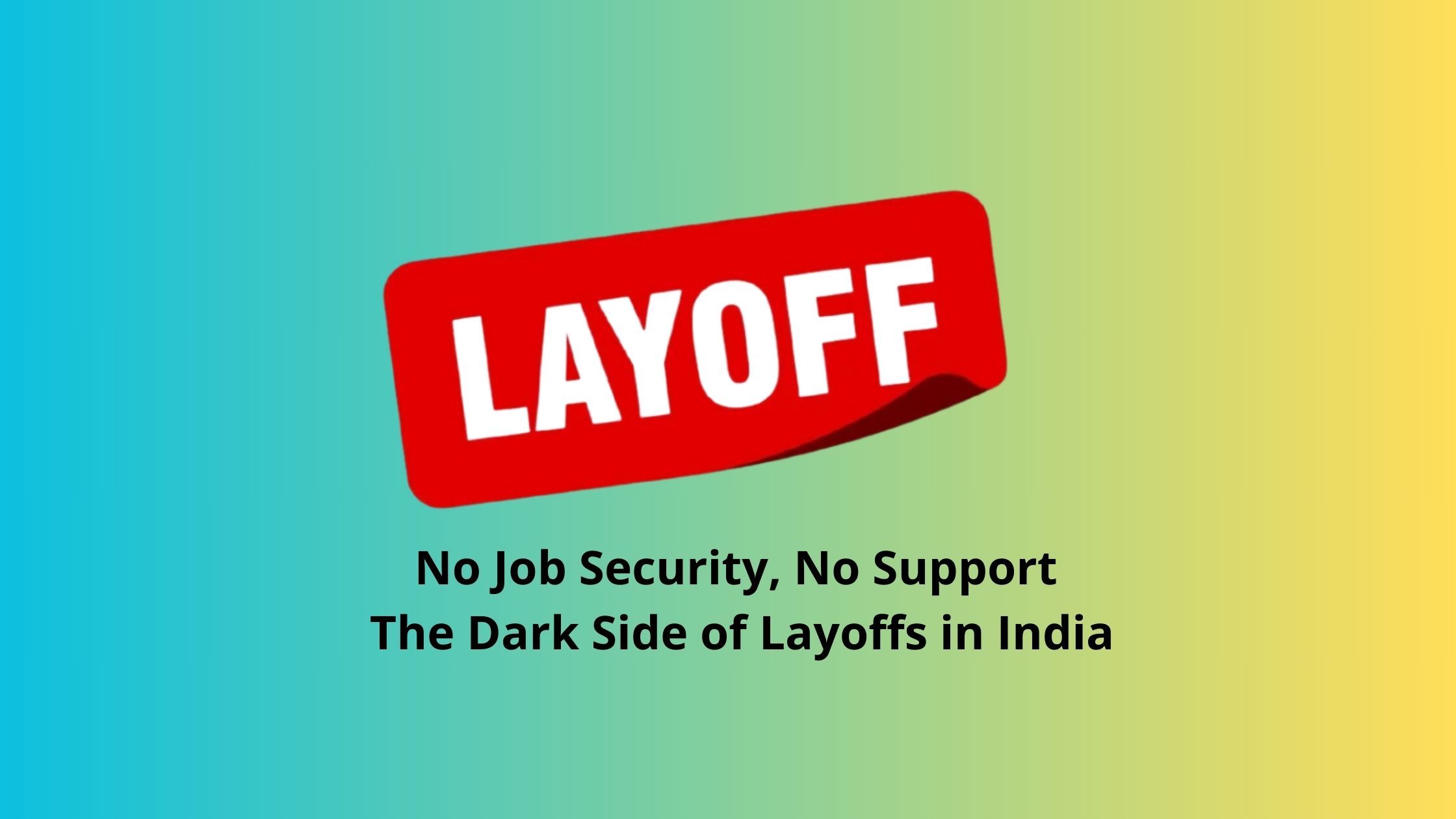
The corporate world has always been ruthless, but in recent years, mass layoffs have become more brutal than ever. When Amazon, one of the biggest tech giants in the world, fired 14,000 managers despite sitting on a $100 billion cash reserve, it sent a chilling message: no job is truly secure.
But what makes this even worse? The difference in how layoffs impact employees in India versus the US. While American workers have some level of social security, unemployment benefits, and severance packages, Indian employees are often left stranded with no safety net.
In a country where the economy thrives on unstable job markets, contract-based employment, and rising automation, the fear of sudden layoffs is a harsh reality that most employees live with.
Let's compare two employees—John in the US and Rohan in India.
John, a mid-level manager at a tech company in California, just lost his job. He is upset but not financially doomed. Thanks to unemployment benefits, he still gets a fraction of his salary for a few months. His severance package helps him sustain his lifestyle while he looks for another job. His savings remain untouched.
Now, let's look at Rohan, a software engineer in Bengaluru. He just received an email that his position has been eliminated. There is no severance beyond a few weeks' salary. No government aid. No unemployment benefits. He has a family to support, a home loan, and rising expenses. He has no choice but to take any job he finds—even if it pays much less.
This is the harsh truth of layoffs in India—there is no backup plan if you lose your job.
In India, employment is often seen as a lifeline, not just for individuals but for their entire families. The fear of losing a job is so severe that many employees tolerate toxic workplaces, low salaries, and excessive work hours, simply because they know the risks of being unemployed.
Imagine being laid off at 40, with two kids in school and elderly parents to take care of. No one is coming to help you. If you don’t find a job quickly, you burn through your savings, struggle to pay EMIs, and watch your lifestyle collapse.
And the worst part? The system is built this way. The government offers no structured unemployment benefits. Unlike Western countries, Indian employees don’t have a social safety net that can help them stay afloat during tough times. It’s every man for himself.
Layoffs are no longer just about financial losses for companies. They have become a strategic move to cut costs and boost profits, even when companies are making billions.
Take Amazon’s case, for example.
Despite having a record-breaking cash reserve of $100 billion, they laid off thousands of employees. Why? Because it helps increase stock prices, improve financial reports, and keep investors happy. Big corporations and startups alike are now treating employees as disposable assets, hiring aggressively during boom periods and ruthlessly cutting them off when it suits them. For Indian workers, this unpredictability makes financial planning and career stability almost impossible.
In this brutal economic reality, self-preservation becomes the top priority. That’s why more Indians are choosing to move abroad, invest wisely, save aggressively, and even minimize their tax liabilities. If corporations can be selfish, why can’t employees?
The mindset of loyalty to a company is slowly dying. Instead, professionals are prioritizing their financial independence, building side incomes, and exploring global opportunities. Because at the end of the day, when you lose your job, no one is coming to save you.
While we can’t change the corporate layoff culture overnight, we can take steps to protect ourselves from financial ruin:
Gone are the days when employees could expect long-term job security and employer loyalty. The world has changed. Companies prioritize profits over people, and employees need to prioritize self-preservation over blind loyalty. If we live in a system that offers no safety net, then it’s up to us to build our own. Because at the end of the day, no job is permanent, and no one is coming to save you.